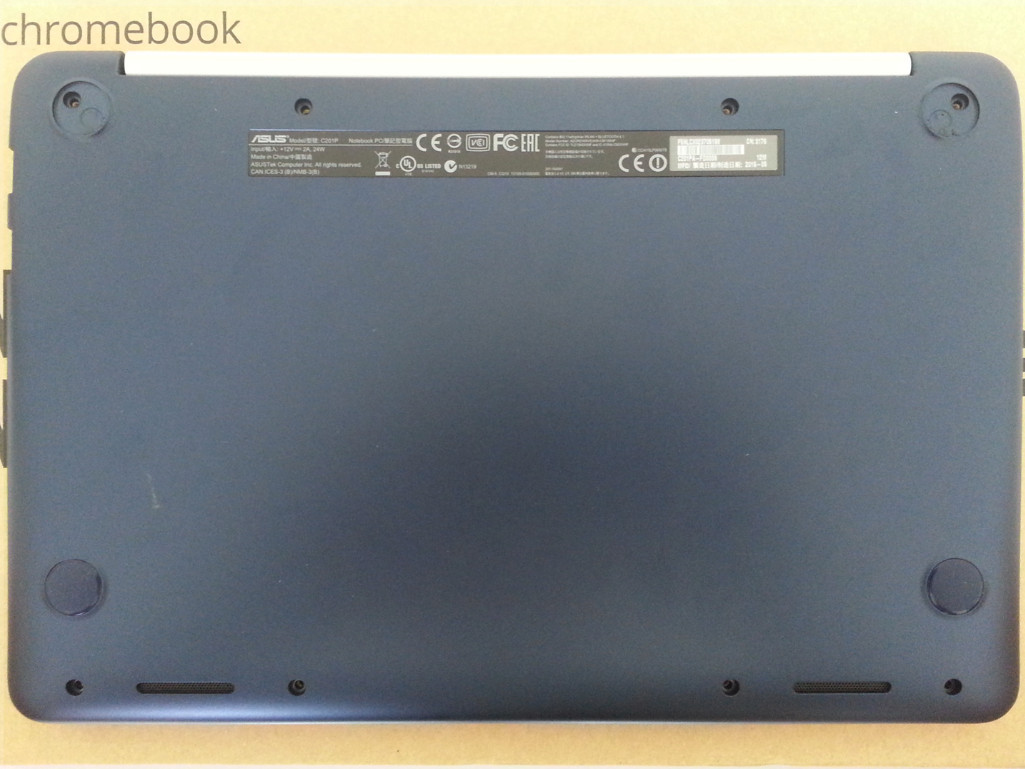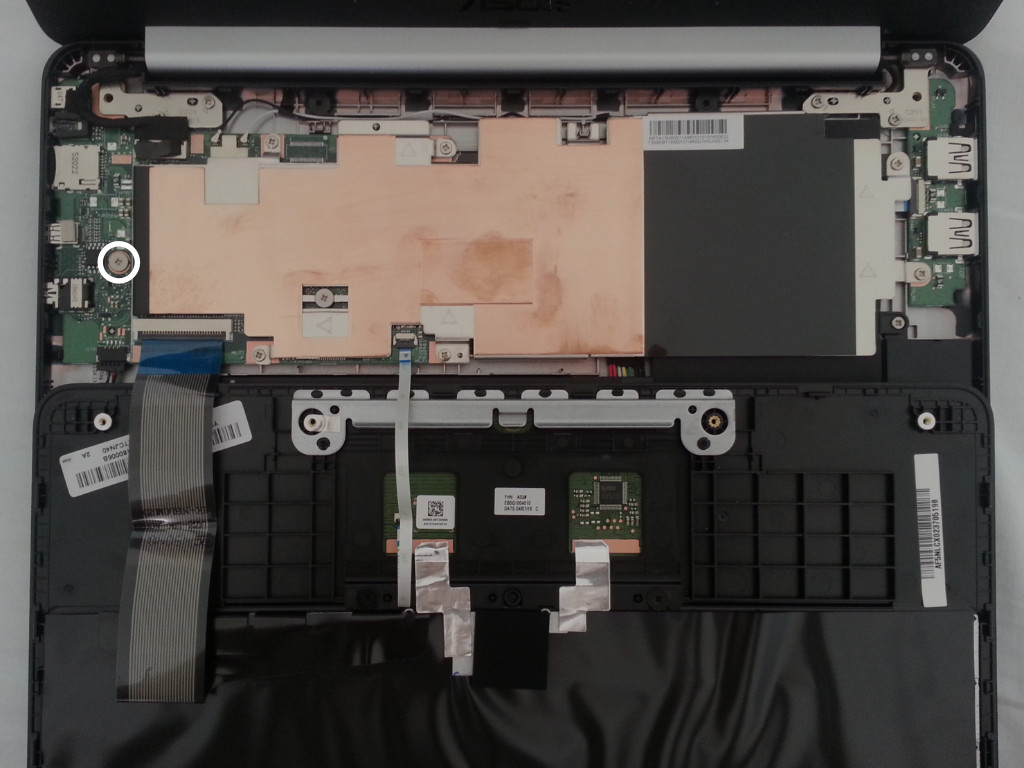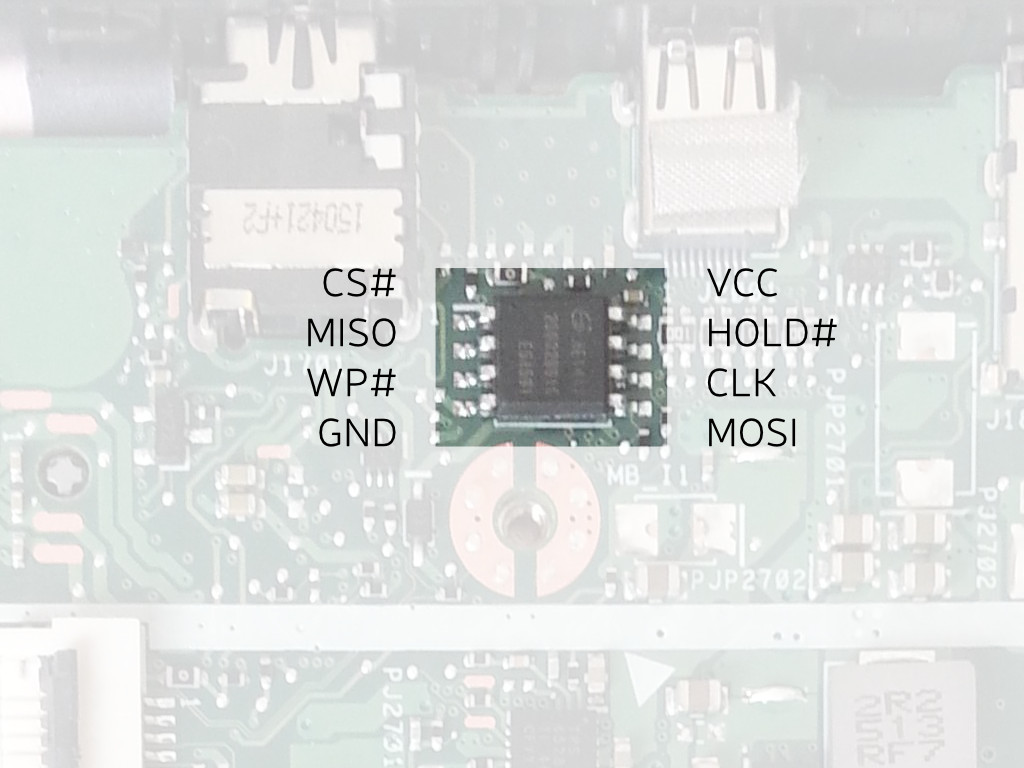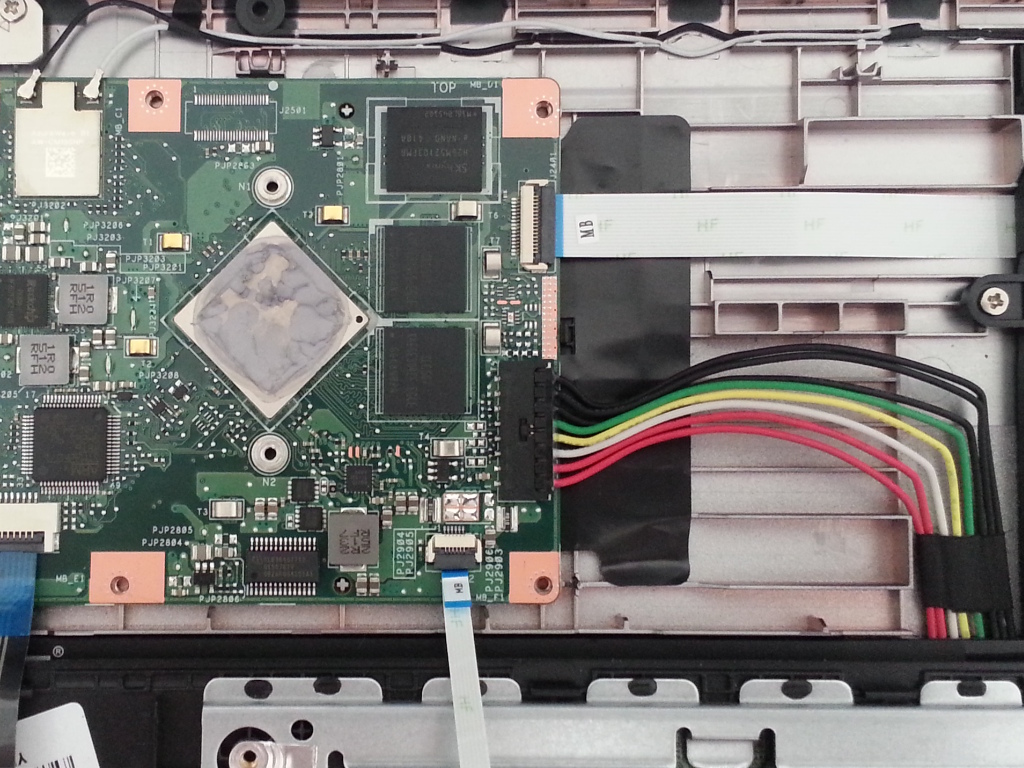2023-07-10 15:43:08 +00:00
|
|
|
---
|
|
|
|
|
title: ASUS Chromebook C201 installation guide
|
|
|
|
|
x-toc-enable: true
|
|
|
|
|
...
|
|
|
|
|
|
|
|
|
|
WARNING: This board is known to have non-functioning video init at the time
|
|
|
|
|
of writing, 19 February 2023. It is as yet unsolved.
|
|
|
|
|
|
2023-07-17 15:45:56 +00:00
|
|
|
See: <https://notabug.org/libreboot/lbmk/issues/136> (NOTE: Libreboot issue page,
|
2023-10-26 00:10:41 +00:00
|
|
|
not Canoeboot)
|
2023-07-10 15:43:08 +00:00
|
|
|
|
|
|
|
|
Introduction
|
|
|
|
|
===========
|
|
|
|
|
|
|
|
|
|
This page contains information about assembly and disassembly, for flashing
|
|
|
|
|
the ASUS Chromebook C201 externally. It will also link to internal flashing
|
|
|
|
|
instructions, and information about U-Boot.
|
|
|
|
|
|
|
|
|
|
Flashrom
|
|
|
|
|
--------
|
|
|
|
|
|
|
|
|
|
A special fork of flashrom, maintained by Google, is required for flashing.
|
|
|
|
|
More information about this is present in the generic [chromebook flashing
|
|
|
|
|
instructions](chromebooks.md).
|
|
|
|
|
|

extreme cleanup / grandiose gesture
make canoeboot a truly GNU FSDG compliant coreboot distro,
by removing all overly positive reference to Libreboot;
what remains is technical in nature, so as to provide
historical context since Canoeboot is a fork of Libreboot.
I've stated before that I wish to take a more neutral tone
toward the FSF, in contrast to the *coldboot war* of 2023
when GNU Boot started.
Canoeboot was heavily linking to Libreboot, even going so far
as to call itself "inferior" and tell the reader to use
Libreboot.
From now on, Canoeboot will be maintained as though I actually
believed in FSF propoganda. I don't, but its users do. Treat
them with respect. My reason for providing Canoeboot is
precisely that I wish for such people to have a high quality
coreboot distro, much unlike the inferior *GNU Boot* project;
inferior because to this day, it's still based on very old
Libreboot, with not much changed (of any real substance)
relative to the Libreboot 20220710 release on which it forked.
In general, I've also found a lot of stragglers from when
Canoeboot started, where paragraphs referred to Libreboot that
should have actually referred to Canoeboot, or paragraphs
with Libreboot-specific information that does not make sense
in the Canoeboot project e.g. references to vendor scripts.
The resulting canoeboot.org will now look no different to any
typical reader than a typical FSF-aligned project.
There is a next stage to this, which will become apparent to
everyone if I have my way.
Signed-off-by: Leah Rowe <info@minifree.org>
2024-05-10 02:12:44 +00:00
|
|
|
NOTE: Canoeboot standardises on [flashprog](https://flashprog.org/wiki/Flashprog)
|
2024-01-27 22:35:38 +00:00
|
|
|
now, as of 3 May 2024, which is a fork of flashrom, but the chromium fork
|
|
|
|
|
is another fork of flashrom, and you should use that on chromebooks.
|
|
|
|
|
|
2023-10-26 00:10:41 +00:00
|
|
|
Depthcharge payload (obsolete)
|
|
|
|
|
------------------------------
|
|
|
|
|
|

extreme cleanup / grandiose gesture
make canoeboot a truly GNU FSDG compliant coreboot distro,
by removing all overly positive reference to Libreboot;
what remains is technical in nature, so as to provide
historical context since Canoeboot is a fork of Libreboot.
I've stated before that I wish to take a more neutral tone
toward the FSF, in contrast to the *coldboot war* of 2023
when GNU Boot started.
Canoeboot was heavily linking to Libreboot, even going so far
as to call itself "inferior" and tell the reader to use
Libreboot.
From now on, Canoeboot will be maintained as though I actually
believed in FSF propoganda. I don't, but its users do. Treat
them with respect. My reason for providing Canoeboot is
precisely that I wish for such people to have a high quality
coreboot distro, much unlike the inferior *GNU Boot* project;
inferior because to this day, it's still based on very old
Libreboot, with not much changed (of any real substance)
relative to the Libreboot 20220710 release on which it forked.
In general, I've also found a lot of stragglers from when
Canoeboot started, where paragraphs referred to Libreboot that
should have actually referred to Canoeboot, or paragraphs
with Libreboot-specific information that does not make sense
in the Canoeboot project e.g. references to vendor scripts.
The resulting canoeboot.org will now look no different to any
typical reader than a typical FSF-aligned project.
There is a next stage to this, which will become apparent to
everyone if I have my way.
Signed-off-by: Leah Rowe <info@minifree.org>
2024-05-10 02:12:44 +00:00
|
|
|
This board was also supported in GNU Libreboot 20160907, with the Depthcharge
|
2023-10-26 00:10:41 +00:00
|
|
|
payload. Support was dropped in later releases, and then re-added in the
|
|
|
|
|
December 2022 release but with *u-boot* payload (not *depthcharge*).
|
|
|
|
|
|
|
|
|
|
Refer to older versions of this page, in `lbwww.git`, if you wish to see
|
|
|
|
|
instructions pertaining to Depthcharge:
|
|
|
|
|
|
|
|
|
|
* <https://notabug.org/libreboot/lbwww/src/4be2eed23e11b1071cd500a329abf654ab25f942/site/docs/install/c201.md>
|
|
|
|
|
* <https://notabug.org/libreboot/lbwww/src/4be2eed23e11b1071cd500a329abf654ab25f942/site/docs/hardware/c201.md>
|
|
|
|
|
|
2023-07-10 15:43:08 +00:00
|
|
|
U-boot payload
|
|
|
|
|
==============
|
|
|
|
|
|
|
|
|
|
U-Boot was ported to coreboot CrOS devices, courtesy of Alper Nebi
|
2023-10-26 00:10:41 +00:00
|
|
|
Yasak on behalf of the Libreboot project, upon which Canoeboot is based.
|
2023-07-10 15:43:08 +00:00
|
|
|
|
|
|
|
|
Read the section pertaining to U-boot payload:
|
|
|
|
|
|
2023-10-26 00:10:41 +00:00
|
|
|
[u-boot payload documentation for Canoeboot](../uboot/)
|
2023-07-10 15:43:08 +00:00
|
|
|
|
|
|
|
|
Internal flashing
|
|
|
|
|
=================
|
|
|
|
|
|
|
|
|
|
External flashing is possible, but only necessary in the event of a *brick*.
|
|
|
|
|
If you're flashing good firmware, and the machine boots properly, you can
|
|
|
|
|
do it in software, from the host CPU.
|
|
|
|
|
|
|
|
|
|
In the past, C201 was the only CrOS device so this page contained information
|
2023-10-26 00:10:41 +00:00
|
|
|
about internal flashing. Canoeboot now supports many more CrOS devices, so
|
2023-07-10 15:43:08 +00:00
|
|
|
the information has moved.
|
|
|
|
|
|
|
|
|
|
See: [chromebook flashing instructions](chromebooks.md)
|
|
|
|
|
|
|
|
|
|
Write-protect screw
|
|
|
|
|
-------------------
|
|
|
|
|
|
|
|
|
|
The chromebook flashing instructions, linked above, refer to a *screw* that
|
|
|
|
|
can be turned, to disable flash protection. This is necessary, for internally
|
|
|
|
|
flashing the C201. This section will tell you how to access that screw.
|
|
|
|
|
|
|
|
|
|
To access the screw, the device has to be opened. There are 8 screws to remove
|
|
|
|
|
from the bottom of the device, as shown on the picture below. Two are hidden
|
|
|
|
|
under the top pads. After removing the screws, the keyboard plastic part can be
|
|
|
|
|
carefully detached from the rest. Beware: there are cables attached to it! It
|
|
|
|
|
is advised to flip the keyboard plastic part over, as shown on the picture
|
|
|
|
|
below. The write protect screw is located next to the SPI flash chip, circled
|
|
|
|
|
in red in the picture below. It has to be removed. Refer to the following
|
|
|
|
|
photos:
|
|
|
|
|
|
2023-10-26 00:10:41 +00:00
|
|
|
[](https://av.canoeboot.org/c201/screws.jpg)
|
2023-07-10 15:43:08 +00:00
|
|
|
|
2023-10-26 00:10:41 +00:00
|
|
|
[](https://av.canoeboot.org/c201/wp-screw.jpg)
|
2023-07-10 15:43:08 +00:00
|
|
|
|
|
|
|
|
The write protect screw can be put back in place later, when the device
|
|
|
|
|
is known to be in a working state.
|
|
|
|
|
|
|
|
|
|
External flashing
|
|
|
|
|
=================
|
|
|
|
|
|
|
|
|
|
If the machine is no longer booting, due to bad firmware, you can unbrick
|
|
|
|
|
it externally. Refer to [external flash instructions](spi.md).
|
|
|
|
|
|
|
|
|
|
[](https://av.canoeboot.org/c201/spi-flash-layout.jpg)
|
2023-07-10 15:43:08 +00:00
|
|
|
|
|
|
|
|
[](https://av.canoeboot.org/c201/battery-connector.jpg)
|
2023-07-10 15:43:08 +00:00
|
|
|
|
|
|
|
|
You do not need to correct the `WP#` pin because it is held high via pull-up
|
|
|
|
|
resistor to 3.3v, when the write-protect screw is loosened (when tightened,
|
|
|
|
|
the screw grounds this pin; the pull-up resistor is to prevent a dead short).
|
|
|
|
|
|
|
|
|
|
You must remove the battery, prior to flashing. The connector is shown in
|
|
|
|
|
the 2nd photo, above (the big black connector, with the black, green, yellow,
|
|
|
|
|
white and red wires going into it). Simply unplug that.
|